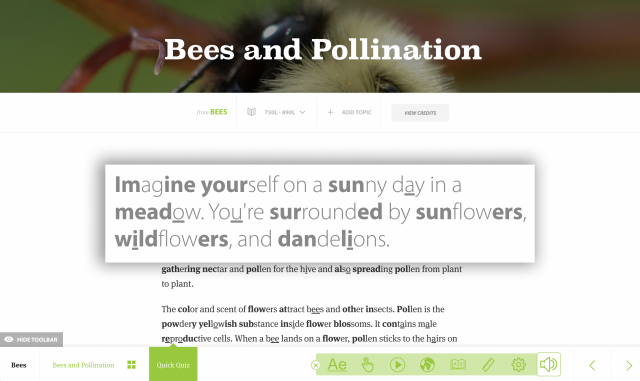8 Ways to Boost Memorization Skills
- December 23, 2013
- By Sally Sigan

Funny, the things that get stuck in your head. I have trouble remembering my bank password, but somehow my brain has managed to retain the books of the bible—in order–chiefly due to a catchy song I learned in bible school when I was eight. It often seems as if I’ve forgotten so much more than I ever learned, but scientists would assure me that my brain is continually at work, categorizing new information, calling up old files and making connections between the old and new memories.
Scientists are still learning about the brain and how memory works, but there are some pretty substantial insights that are essential for teachers to know. As teachers, we may not necessarily see our task as getting our students to memorize information; however, the truth is that there is a fine line between learning and memorizing. To our brains, the difference may seem minimal.
As humans, we have two types of memory, short-term or ‘working’ memory, and long-term, or ‘stored’ memory. Our brain is a pattern-seeking entity that encodes information, much the same way that an online search engine lifts words or phrases from your search history and then links you to related advertisements. Each time a connection is made, the path from one idea to the next is made clearer and the thought process improves. This is why practicing the piano makes a good pianist. The firing between the synapses speeds up and works better and better each time we use it. So as teachers, there are two incentives for encouraging our students to memorize. First, they will move what they’ve learned from their short term memory into their long-term memory for use later on, and second, because the process itself will improve their ability to think and learn. Memorizing is good for our brains. The cliché “use it or lose it” applies here! Here are 8 ways to boost memorization skills for your students.
1) Activate prior knowledge. This age-old teaching method is a way to ‘prime the pump,’ so to speak. When you open a lesson with ‘what do you know’ or ‘has anyone ever’ questions, you are revving up the synapses in your student’s brains, which then prepares them to better store memory.
2) Provide information of interest and meaning to the students. This may fall under the “obvious” category, but studies show that the more interested we are in something, the more likely we’re able to remember it.
3) Use visuals! This is the brilliance behind graphic organizers. The majority of our students are visual learners and this means that visuals greatly aide most students in studying and memorizing.
4) Write it over and over again. Happily we don’t use this torture too often, and we don’t have one of Professor Umbridge’s pens, but this is the logic behind writing spelling words 10 times, and the reason we took notes in college. Writing it down helps provide the magic three; information that is received editorially, then written, and finally read, has more of a chance of making it to long-term memory.
5) Concentration—One thing at a time! Students who are distracted or multitasking are unlikely to remember the lesson.
6) Summarize— Whether it’s something they’ve read or just heard, asking student to summarize information in their own words helps them encode and remember.
7) Have them teach—think back to subjects you gave a presentation on or had to teach. Chances are, you remember quite a bit of the content. The process of organizing information and presenting to another person fires many synapses!
8) Memory tricks such as songs, acronyms, mnemonics, raps and rhymes all help students categorize and especially trigger information for recall. HOMES are great way to recall the great lakes. “Please Excuse My Dear Aunt Sally” helps students to navigate math procedures (Parentheses, Exponents, Multiplication, Division, Addition, Subtraction) and the ABC song is the first classic stepping stone into learning the alphabet.
Clearly, not every brain works the same. Part of our goal is to help our students learn the best strategies for getting their particular brains to store information in their long-term memories.
Obviously, my brain is partial to catchy tunes! “Genesis, Exodus…”


